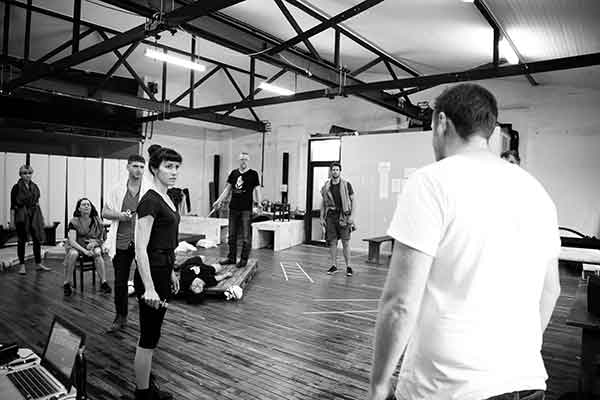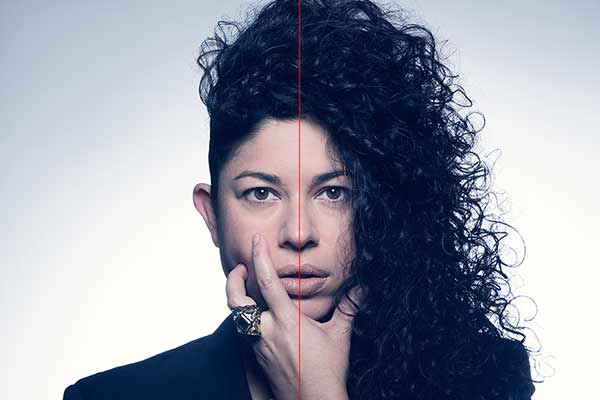Michael Pigott, directing at the helm of Sport For Jove Theatre Company for this year's Shakespeare In The Park in Leura, has given the classic 'Julius Caesar' a modern twist.
His decision to cast some of the lead roles that were traditionally male as female, is however, currently fairly common.
Michael admits it garnered mixed responses. "Some people were like, 'why didn't you just do a modern play?', and it's because Shakespeare is really exciting, and why should we not play around with Shakespeare, why should we keep it how everyone says that it should be?"
Far from being a politically correct gimmick, Michael says the decision to cast Caesar as a woman is integral to a contemporary staging. 
"These canonical texts that we have, these great texts that we hold up as things that need to be studied, we have to look at a re-examination of them and how they construct gender, and how they play a part in constructing our idea about gender. That sounds like an intellectual exercise but its not, its about finding the humanity of the characters.
"Suddenly you go, 'why do we assume that some behaviour is male and some behaviour is female'? In this day and age, and particularly when we started rehearsing this, we were going into an election in the United States that we thought was being won by a woman... It is perfectly conceivable for a woman to be in a position of power, not only to be a military general but a dictator in chief of a country."
Michael is adamant that switching the gender of Caesar is simply part of a larger parcel of signals he offers the audience, as a new way of experiencing the text, or even as a way into it for the first time. 
He is aware of the fact that many theatregoers may be turned off by Shakespearean language.
"I think what this company does is pay a deep respect to the language of the play, but with an incredible knowledge that Shakespeare, when he was writing, was writing for a company that was making changes all the time.
"One of the greatest things about Shakespeare is not only his language but his theatrical ideas, and it's about taking him as a theatre maker... And sort of reshaping the play as a contemporary experience. So there might be some lines that we have rearranged."
Staging choices, he says, act as a guide for the audience in difficult sections.
"All of us nowadays get most of our stimulus visually, and its about rising to that in terms of creating a visual language that exists with the text, and helps us to understand that text. You get these moments that seem almost very naturalistic even though they're very heightened."
At a time when people may have had enough of politics on their Facebook newsfeeds, Michael says he is relying on his work being a contrast to the inflammatory nature of the current media, and hoping people will come away from the performance with an impression that they are part of the cyclical nature of history.
"What you see in 'Caesar' has not changed since it was written, and it has not changed since the Romans."
The key to this cyclical pattern, Michael emphasises, is the role of the mob, and he has therefore deliberately created a subtle atmosphere around the outdoor stages in Leura and Bella Vista which includes the audience in attendance as the common people of Rome.
"The Brexit thing and the US election thing has shown us that crowds that are in a position where things are not stable can be very easily persuaded. All through the play what you see is this mob that starts off in a celebration and then... They just switch back and forth and back and forth depending on who is speaking to them...
"This is what you see at the moment, the whole world over, there is a sense of panic and instability and I think that we capture that in the play. It makes it very exciting. The great thing about the outdoors is that a beautiful thing happens, in that there is no artifice."
This lack of artifice in theatre is precisely why people should make the drive up to Leura, rather than staying home with Netflix.
"[Theatre] becomes important because it is live, it's human beings in front of us, feeling and moving. Once you capture the excitement of that, once you harness the energy of 15 people running around in a field, theatre is more exciting than anything."
Continuing with cyclical patterns, I ask Michael whether he sees this unifying energy as an antidote to the tribalism of the mob. He considers.
"Maybe. There's a beautiful scene in the play where Cinna the poet gets mobbed because he has the same name as one of the conspirators, and I've always seen that role as someone who is trying to spread something in the world that is an antidote and then gets swallowed by that crowd."
'Julius Caesar' plays at The Sydney Hills Shakespeare in the Park 17 December-29 January. The Leura Shakespeare Festival takes place from 14-29 January.


